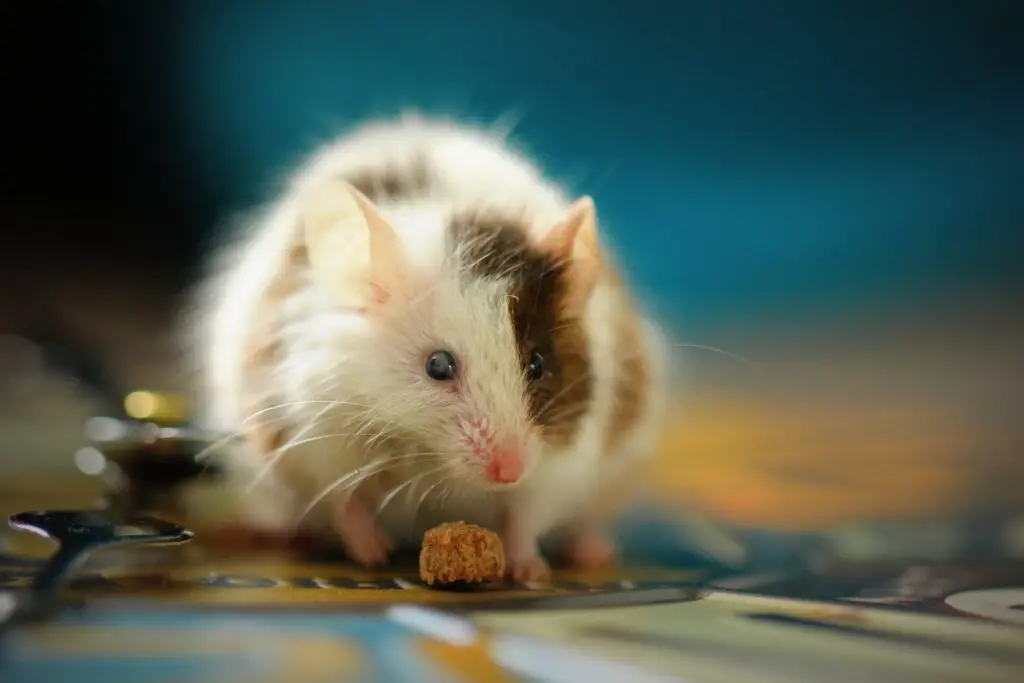Mice are common carriers of fleas, which can pose risks to both human and animal health. Recognizing the signs of a mouse problem and understanding the relationship between mice and fleas is essential for homeowners, especially those with pets like cats and dogs. Effective solutions involve a mix of sanitation, pest control, and regular pet care to mitigate these risks. Learn more here.
Do Mice Naturally Harbor Fleas?
Mice are natural carriers of fleas, which thrive in their fur, feeding on their blood. These tiny parasites are attracted to the warmth and shelter that mouse hosts provide, making them comfortable environments for flea populations to grow. As wild animals, mice can easily pick up fleas while roaming outdoors before bringing them into human habitats.
Within the cozy confines of a nest, fleas find an ideal breeding ground. A single flea can lay dozens of eggs in a short time, meaning a minor mouse presence can quickly escalate into a larger issue. This makes it vital to address any signs of rodents promptly, as they are more than mere nuisances; they’re potential carriers of fleas.

Can Mice Bring Flea Infestations Indoors?
When mice invade homes, they bring with them the risk of indoor flea infestations. These tiny pests can lay eggs in hidden crevices, which can lead to a larger problem if not managed quickly. Fleas are not only a concern for pet owners but can also affect households without pets, as fleas can survive without a host for many months.
Prevention and early intervention by a pest control service are key to stopping fleas from laying eggs and multiplying indoors. Such services can offer tailored solutions to not only remove the existing infestation but also to prevent future occurrences by targeting the lifecycle of fleas and the rodents that carry them.
Recognizing Signs of Fleas in Your Home
Identifying flea infestations early is crucial for effective integrated pest management. Signs of flea problems can include pets scratching more than usual or the presence of flea dirt. To eliminate the fleas, it’s essential to tackle the whole pest problem, not just the symptoms.
Itchy Bites and Skin Irritations
One of the first signs of flea presence is often itchy bites on humans and pets. Fleas can bite humans, leaving small, red, itchy spots that are typically found around the ankles or legs. These skin irritations should be taken seriously as they can lead to secondary infections if scratched excessively.
Flea Dirt and Eggs in Pet Bedding
Integrated pest management begins with a thorough examination of your pet’s bedding for flea dirt and eggs. These signs indicate an active flea population, highlighting the need for immediate action to prevent further reproduction and spread throughout your home.
Excessive Scratching in Pets
Pets that scratch incessantly may be reacting to flea bites. This can lead to hair loss, skin infections, and general distress. Monitoring your pet’s behavior for abnormal scratching can help you catch a flea problem before it becomes severe.
Visual Confirmation of Fleas or Flea Dirt
Finding fleas or flea dirt on your pet or in your home is a definitive sign of an infestation. Wild mice can introduce flea eggs into your home, necessitating flea control measures. Pets should be regularly treated for fleas, and a professional exterminator may be needed in cases of severe infestations. Flea combs can help in identifying flea feces and eggs. Food sources, like furry animals, should be protected, and professional pest control can help prevent the spread of diseases like the bubonic plague.

Addressing the Issue: How to Prevent a Flea Infestation
To combat mice and flea problems, it’s critical to halt their ability to lay eggs, build a nest, and prevent the spreading of diseases. Mice can contaminate areas with their urine and feces, exacerbating the issue and requiring comprehensive pest management approaches.
Sanitation and Home Cleanliness
Maintaining a clean home is essential in deterring pests. Regular sanitation helps minimize food sources and nesting materials that attract rodents and fleas. A tidy environment reduces hiding spots and makes it easier to detect early signs of infestation.
Sealing Entry Points to Deter Rodents
Sealing entry points is a critical step in preventing mice and rats from entering your home. Rodents and fleas often exploit small gaps in man-made structures to gain access. Addressing these vulnerabilities can greatly reduce the chances of a pest infestation and the associated risks, such as murine typhus.
The Role of Professional Pest Control
Professional pest control plays a pivotal role in managing rodent and flea populations. Experts can offer targeted strategies to remove pests and prevent future infestations, ensuring your home remains a safe and comfortable environment.
Regular Pet Treatments
Regularly treating your pets for fleas is a crucial line of defense in preventing infestations. Consistent use of recommended flea prevention products can protect your pets and your home from the nuisance and health risks associated with fleas.
Environmental Controls in and Around the Home
Effective environmental controls include managing the exterior of your home to deter fleas and rodents. Ensuring that adult fleas do not hitch a ride on mice or rats is essential. Addressing a rodent problem early can prevent flea larvae from becoming a larger issue, safeguarding your home environment.

Health Concerns Associated with Mice and Fleas
Fleas that reside on mice can present various health concerns once they make their way into human habitats. These tiny parasites are not just a nuisance; they also carry the risk of transmitting diseases and causing allergic reactions. Understanding these health issues is crucial for effective prevention and control.
The Risk of Flea-Borne Diseases
Mice fleas can be carriers of dangerous pathogens, leading to diseases such as murine typhus and the bubonic plague. While these diseases are less common today, the risk remains, particularly in areas with large rodent populations. Flea-borne diseases can have serious health implications, making it imperative to control flea populations associated with mice.
Flea Allergy Dermatitis in Pets and Humans
Flea allergy dermatitis is a common allergic reaction to flea bites affecting both pets and humans. This condition results in intense itching and discomfort and can lead to secondary skin infections if not treated. Promptly addressing flea infestations is key to preventing these allergic reactions and maintaining the health and comfort of household members.
The Importance of Prompt Intervention
Immediate action against fleas from mice is crucial not only for preventing discomfort but also for averting the spread of disease. Implementing measures to control both flea and mouse populations can significantly reduce health risks. Timely intervention will also minimize the need for more extensive and costly treatments down the line.
Final Thoughts: Safeguarding Against Fleas from Mice
Combatting a mice infestation is crucial not only for the structural integrity of your home but also for the health of its inhabitants. Mice carry fleas that can infest pets and spread to humans, creating a cycle of discomfort and potential illness. It is essential to seal any entry points with durable materials such as spray foam, which can deter rodents from regaining entry. Inspecting your home for gnaw marks can also indicate vulnerable areas that need attention. Taking such preventive measures significantly reduces the risk of fleas indoors and the subsequent need for rodent extermination. Consulting a pest control specialist can be an invaluable step towards rodent extermination and the prevention of flea transfer from mice to household pets. In the United States, green pest control options are increasingly available, offering environmentally friendly solutions to these pervasive problems. Remember, the best defense is a good offense when it comes to safeguarding your home from the nuisances of rodents and fleas.


